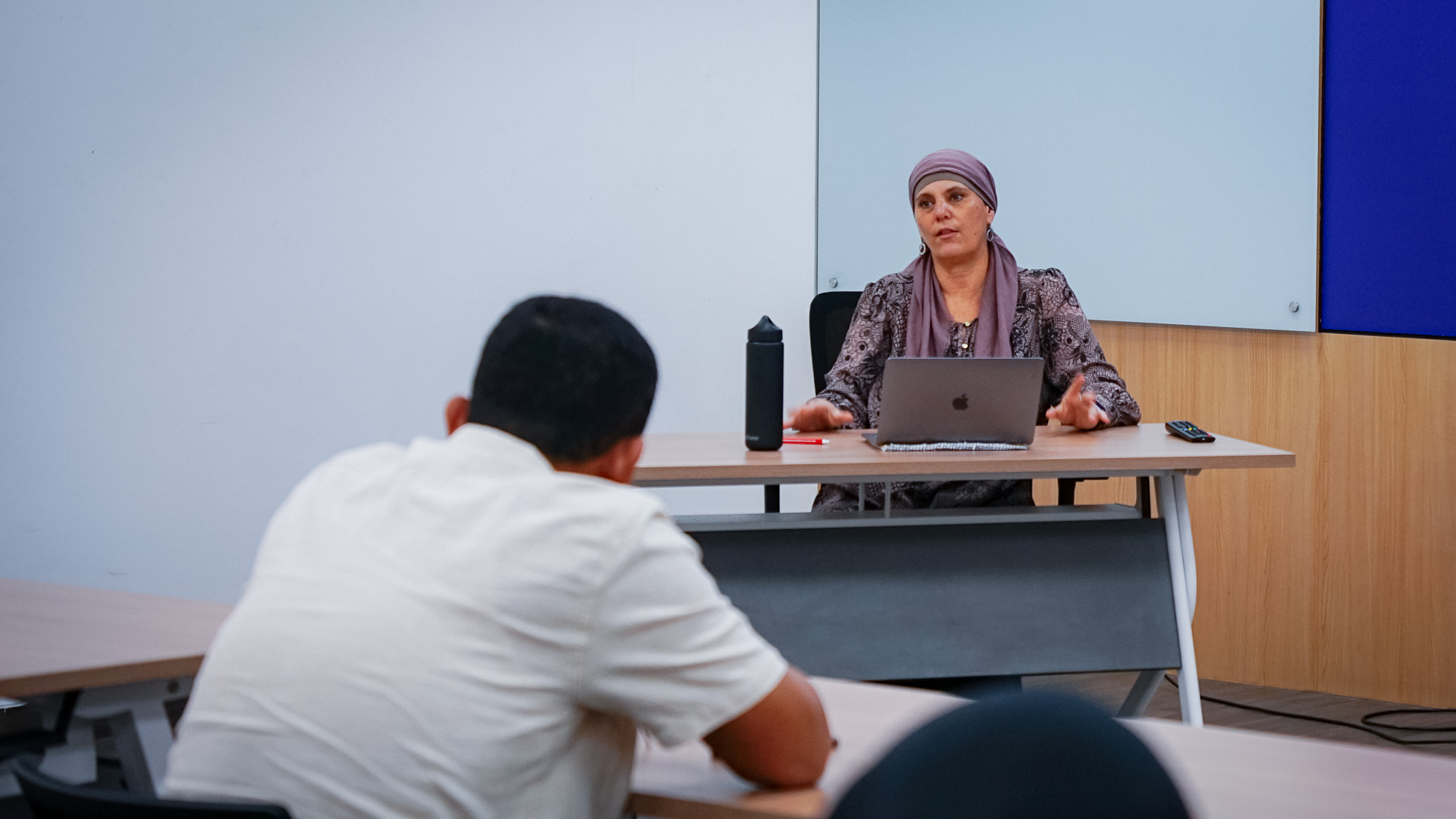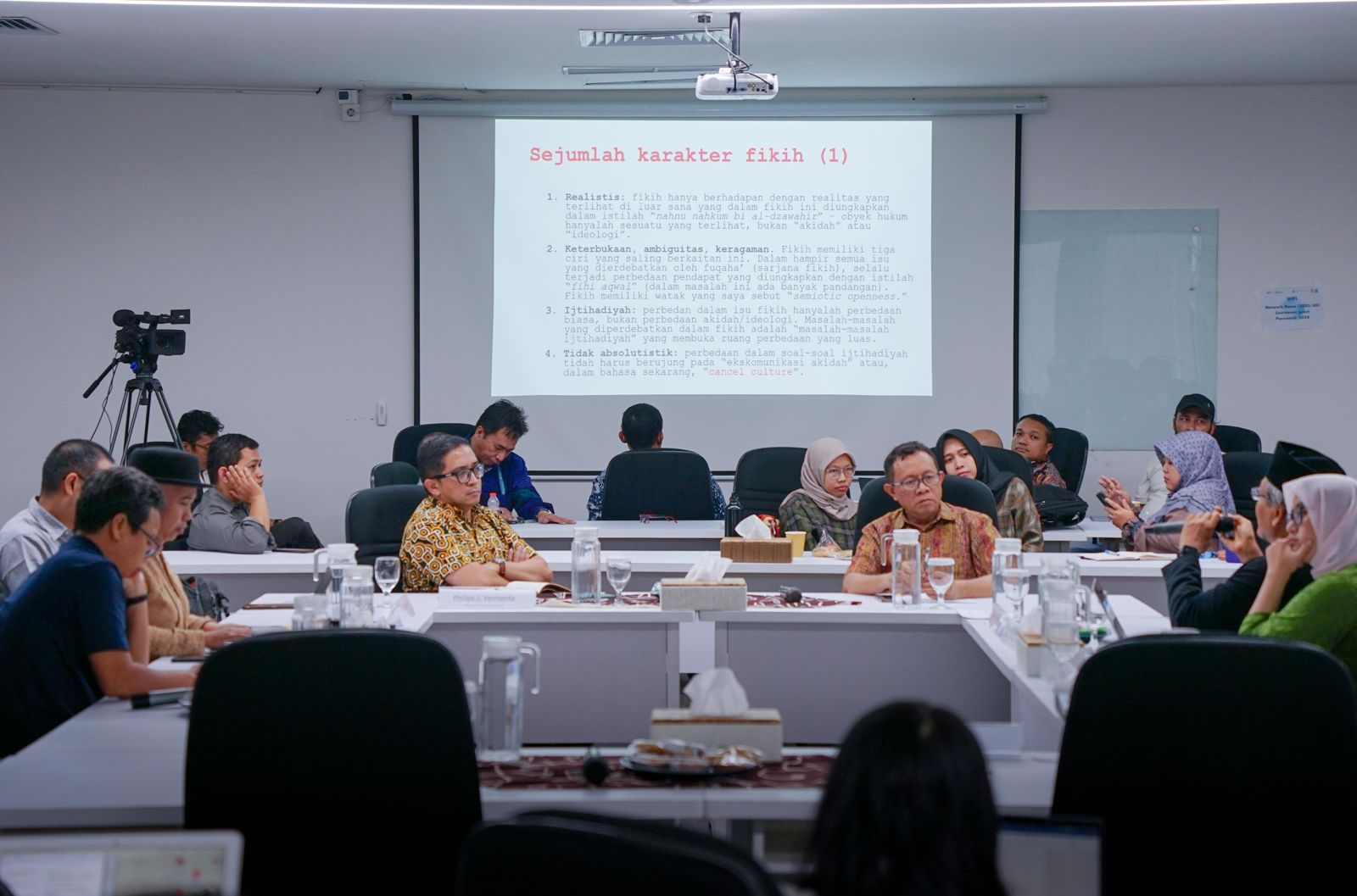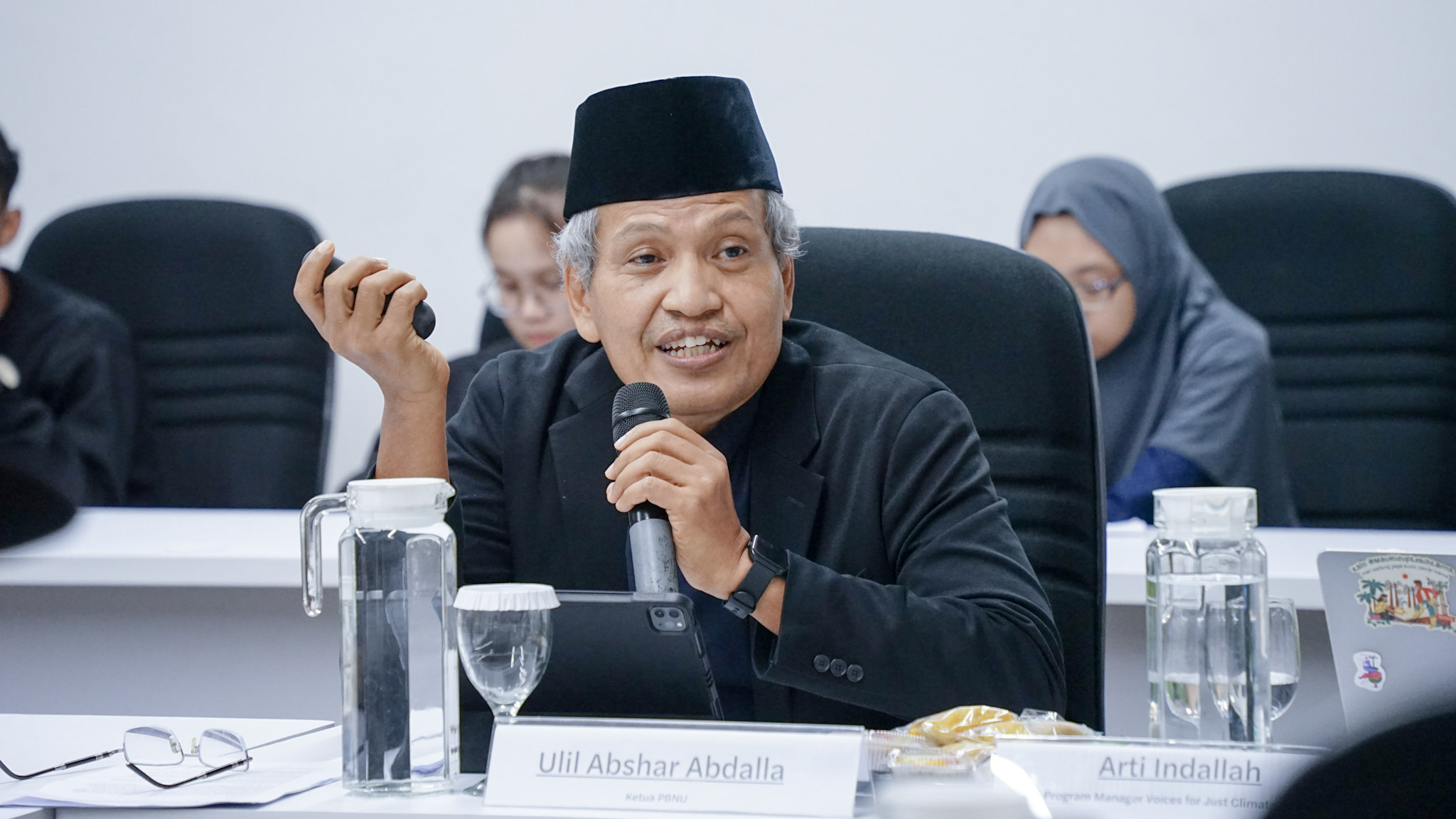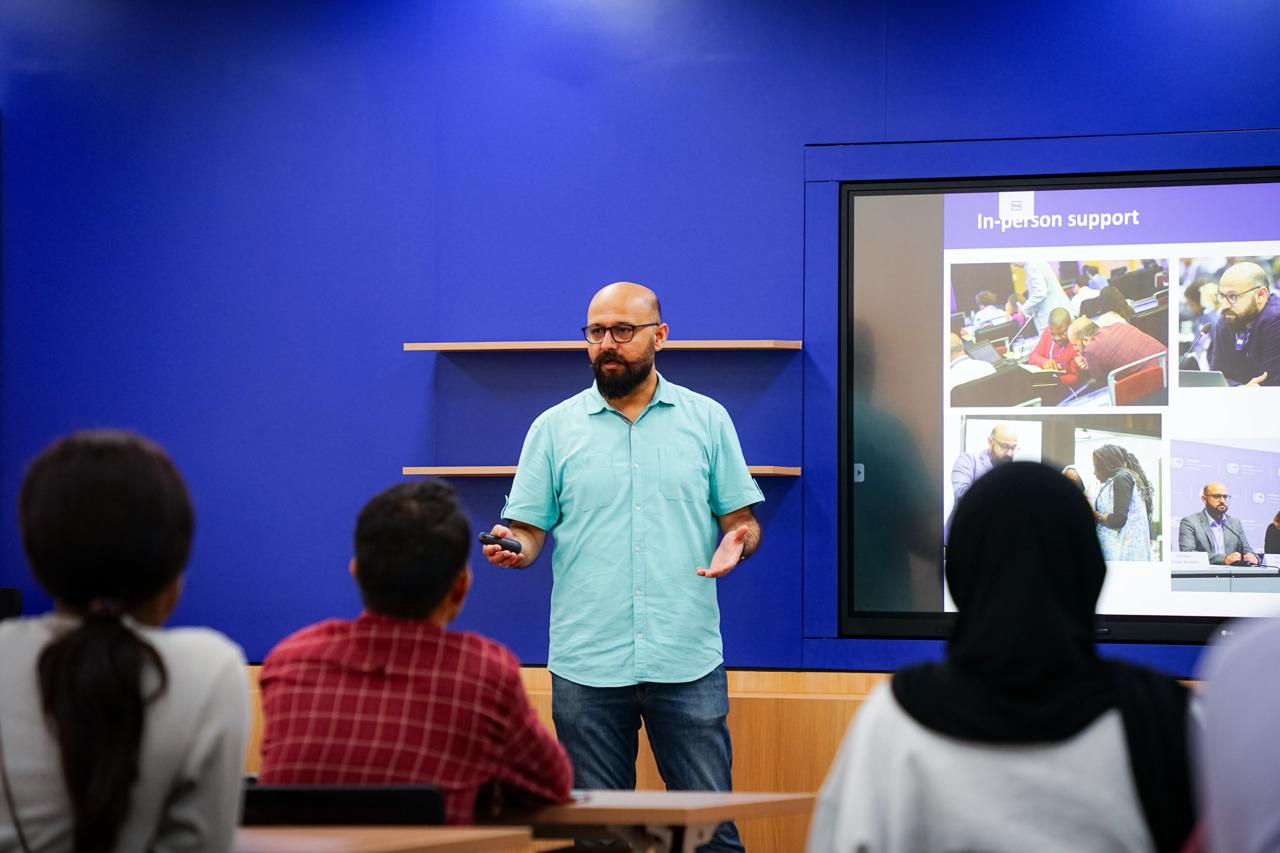Climate Talk Series #5 Highlights Muslim Environmentalism with Prof. Anna M. Gade
July 10, 2024Contributor: Elis Nurhayati | Editor: Supriyono

The Master of Public Policy Program Specializing on Climate Change at UIII Faculty of Social Sciences (FOSS) hosted the Climate Talk Series #5 featuring Anna M. Gade, a Vilas Distinguished Achievement Professor in the Gaylord Nelson Institute for Environmental Studies at the University of Wisconsin-Madison, USA.
Taking place on 9 July 2024, in the Teleconference Room of Faculty B Building, Prof. Gade’s presentation centered around the religious and social foundations of Muslim environmentalism, drawing on her book "Muslim Environmentalisms: Religious and Social Foundations," published by Columbia University Press in 2019.
| Read also: Can Islamic Universities Produce Climate Leaders and Eco-Theologians? |
In her talk, Prof. Gade highlighted the diverse ways in which Muslim communities and schools of thought address ecological issues, motivated by concerns for both the world and hereafter. Drawing on a wide array of materials, including scripture, jurisprudence, science, art, and social and political engagement, she illustrated the multifaceted nature of Muslim environmentalism.
Additionally, her fieldwork in Indonesia and Southeast Asia provided a rich backdrop for her analysis, bringing to light practical examples of how Islamic teachings influence environmental practices. Her previous works included Perfection Makes Practice: Learning, Emotion, and the Recited Qur’an in Indonesia in 2004 and The Qur’an: An Introduction in 2010.
The event underscored the importance of interdisciplinary approaches in addressing environmental challenges. Prof. Gade’s insights into Muslim environmentalism offer valuable lessons for policymakers, educators, conservation activists, and environmental advocates, highlighting the need to incorporate diverse cultural and religious perspectives in environmental discourses and climate actions.
| Read also: Tackling Environmental Issues Through the Lens of Islam: UIII Student’s Insights from Borneo Youth Camp |
- Call for Papers 2025: FEB UIII Invites Researchers to Explore Muslim World Economy & Sustainability in OIC Countries
- Prof. Dr. Nasaruddin Umar: A Distinguished Profile in Religious Leadership
- Is Indonesia’s Middle Class Collapsing?
- Pedaling to Work, Dr. Lukman’s Message on ‘World Sustainable Transport Day’
- Welcoming the Pilgrim of Hope: Indonesian Muslim Leaders Embrace Pope Francis
- Sheikh Muhammad adh-Dhuwaini: A Recognized Authority in Sharia and Law
- Qurban and Grassroots Innovations Across Indonesia
- Indonesia's Green Qurban Movement
- UIII Productivity Ratio 2023
- Unsung Heroes in Global Trade: Celebrating International Customs Day 2024


